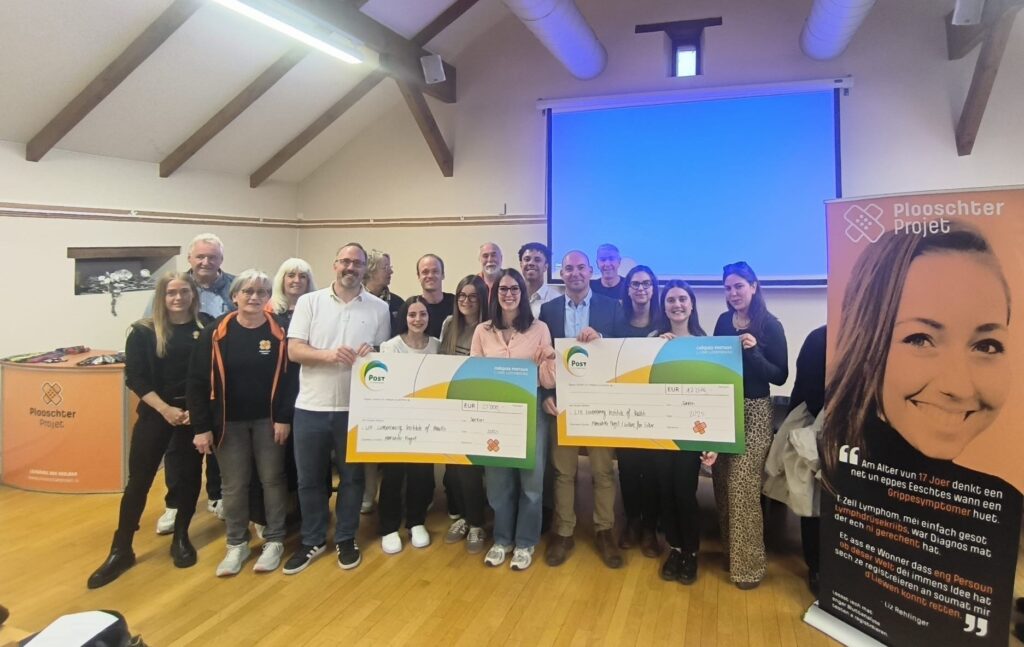News
Giving a stronger “voice” to vocal biomarkers!
LIH project Vocalive accepted for funding
- Digital Health
- Precision Health Research at DoPH
- Deep Digital Phenotyping Research Unit
- Research Projects & Clinical Trials
- Donation

In March 2024, the LIH saw its latest digital health project Vocalive funded by the Luxembourg National Research Fund (FNR) under the 2023 JUMP call. The study, led by the Deep Digital Phenotyping (DDP) unit of the LIH Department of Precision Health (DoPH) in collaboration with UK company MedtechtoMarket, will aim to build a platform to promote and facilitate the adoption and use of vocal biomarkers in healthcare, leveraging the LIH’s expertise in audio processing and vocal biomarker research.
A vocal biomarker is a feature or a combination of features from the audio signal of the voice that is associated with a clinical outcome and can be used to monitor patients, diagnose a condition, grade the severity of a disease or as a proxy for treatment effectiveness. They offer non-invasive, cost-efficient, and scalable solutions for health monitoring and preventive healthcare, contributing to real-life data capture from patients. Even though research on vocal biomarkers is quite advanced, and there are multiple companies developing vocal biomarkers for various health outcomes, there is an obvious gap between research and the actual implementation of vocal biomarkers in clinical research and practice. Thus, only a minority of vocal biomarkers on the market are clinically validated.
To fully leverage the potential of vocal biomarkers, it is crucial to address the challenges related to data availability and standardisation, visibility and transparency, and industry hesitancy. Overcoming these obstacles will enable vocal biomarkers to revolutionise patient monitoring, and telemedicine, and contribute to the shift towards personalised and preventive medicine, ultimately improving health outcomes and reducing healthcare costs globally,
says Dr Guy Fagherazzi, Director of the Department of Precision Health and leader of the project.
In this context, Vocalive aims to create a service platform for vocal biomarker development, based on a proprietary artificial intelligence (AI)-based voice processing algorithm. “A distinguishing feature of this technology is that it is specifically developed to use voice recordings in non-clinical settings for the development of vocal biomarkers”, explains Dr Vladimir Despotovic, Health Data scientist within the LIH Bioinformatics platform and co-leader of the project. Indeed, most available vocal biomarkers are developed using clinical settings, and highly standardised voice recordings, limiting their performance when used in the real-life non-standard settings of clinical practice. It is therefore crucial for data collection to be seamlessly integrated into the patient’s real-life context, for instance as a telemonitoring solution or smartphone app. “In our service platform, we plan to offer professional voice processing and quality control services that can be used by third-party vocal biomarker providers to improve the performance of their own algorithms”, says Dr Fagherazzi. For Pharma companies and contract research organisations specifically, the new platform will offer end-to-end custom services for vocal biomarker development for their outcome of interest. The aim is to integrate vocal biomarkers into early clinical trials to increase the amount of positive evidence about their effectiveness and promote their adoption.
“In addition to these services, we will also create a marketplace on the platform for ready-to-use vocal biomarkers, which will promote high standards when it comes to transparency in terms of performance of vocal biomarkers. This will help increase visibility, accessibility and build trust with regard to the effectiveness of vocal biomarkers, thereby ultimately ensuring their adoption in clinical research and contributing to the personalisation of healthcare through enhanced remote patient monitoring”, concludes Dr Kevser Fünfgeld, Digital Health Program Manager at the LIH and Scientific Manager of the technology transfer of its proprietary voice pipeline.
The project will start in September 2024 and is expected to end in February 2026.
Funding and collaborations
Vocalive is supported by a EUR 499,000 grant through the FNR JUMP programme, a competitive funding instrument designed to bridge the technical and funding gap between research-driven discoveries and their commercialisation/utilisation, thereby enhancing the impact of Luxembourg’s research on the economy and society. Vocalive is carried out in collaboration with MedtechtoMarket, a contract development and manufacturing company supporting the development of medical diagnostics from concept through to commercial launch.







